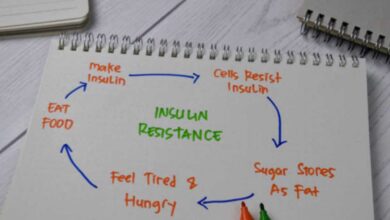
Making changes to your health routine, whether it’s a new diet, exercise regimen, supplement, or lifestyle adjustment, can be a significant commitment. It’s essential to assess whether these changes are beneficial and contributing positively to your well-being. Here are key strategies to help you evaluate the effectiveness of any health change you undertake.
1. Set Clear Goals and Expectations
Before implementing any health change, establish clear, measurable goals. These could include weight loss, improving energy levels, reducing pain, or enhancing mental clarity. Setting realistic and achievable objectives will provide a benchmark to evaluate progress.
2. Track Your Progress
Consistently tracking your progress is vital. Use a journal, app, or spreadsheet to record relevant data. Depending on your goal, this could include weight measurements, exercise durations, dietary intake, sleep patterns, or symptom severity. Regular tracking allows you to observe trends and identify any improvements or setbacks.
3. Monitor Physical Symptoms
Pay close attention to any physical changes. For instance, if your goal is to reduce pain and you start taking products from CBD Guru, note the intensity, frequency, and duration of your pain before and after you start taking the product. Similarly, if you’re aiming to improve digestion, track symptoms like bloating, regularity, and comfort. Documenting these symptoms can help you determine whether the change is having a positive impact.
4. Evaluate Mental and Emotional Well-being
Health changes can also affect your mental and emotional state. Keep a record of your mood, stress levels, and overall mental clarity. Tools like mood trackers or mindfulness apps can be useful in monitoring these aspects. Notice if there are improvements in your anxiety levels, mood swings, or overall emotional stability.
5. Assess Energy Levels
An effective health change should ideally boost your energy levels. Track your daily energy, noting any variations throughout the day. Identify patterns such as increased energy in the morning or reduced fatigue in the afternoon. Improvements in energy levels can be a strong indicator of the positive impact of your health changes.
6. Sleep Quality
Good sleep is a fundamental component of health. Monitor your sleep quality using sleep diaries or apps that track sleep patterns. Note factors like how long it takes to fall asleep, the number of awakenings during the night, and how rested you feel in the morning. Positive changes in sleep patterns can signify that your health changes are beneficial.
7. Get Objective Measurements
For more precise evaluation, consider getting objective measurements through medical tests or assessments. Regular blood tests, fitness assessments, or body composition analyses can provide concrete data on your health improvements. For example, improvements in cholesterol levels, blood pressure, or body fat percentage can validate the effectiveness of your health changes.
8. Seek Feedback from Healthcare Providers
Consulting with healthcare professionals can provide valuable insights. Regular check-ups and consultations with your doctor, nutritionist, or personal trainer can help assess your progress. They can offer professional evaluations and recommend adjustments to your health changes based on their observations and your feedback.
9. Reflect on Overall Well-being
Take a holistic view of your overall well-being. Reflect on how you feel physically, mentally, and emotionally. Consider whether you feel happier, more balanced, or more in control of your health. Your subjective well-being is an essential indicator of the success of your health changes.
10. Allow Sufficient Time
Understand that significant health changes often take time to manifest. Be patient and give your body adequate time to adjust and show results. Set a reasonable timeframe to evaluate the effectiveness of your health changes, whether it’s a few weeks or a few months, depending on the nature of the change.
Conclusion
Assessing the effectiveness of a health change requires a combination of subjective observation and objective measurement. By setting clear goals, consistently tracking progress, monitoring physical and emotional symptoms, and seeking professional feedback, you can determine whether your health changes are working for you. Patience and persistence are key, as meaningful health improvements often take time to become evident. Remember, the ultimate goal is to enhance your overall well-being, so continually refine your approach based on your assessments and experiences.







